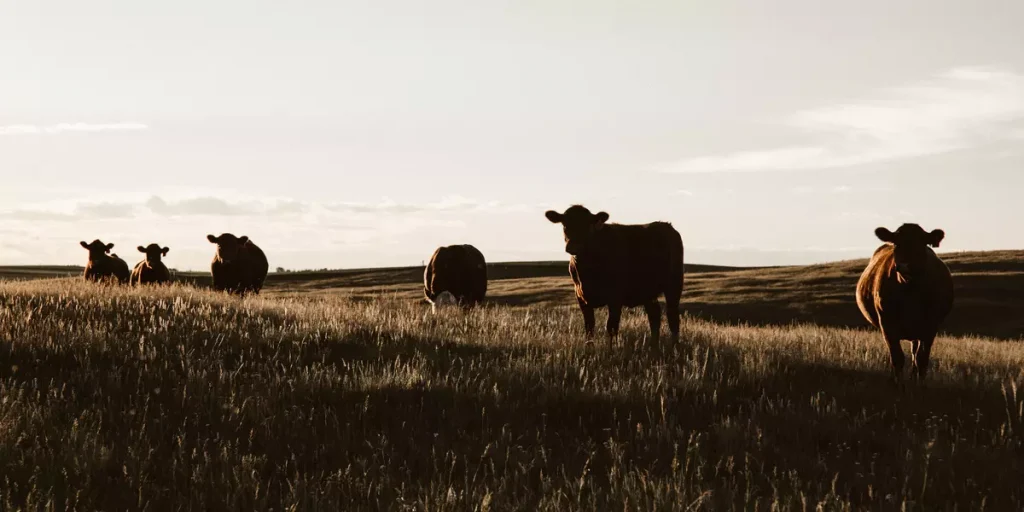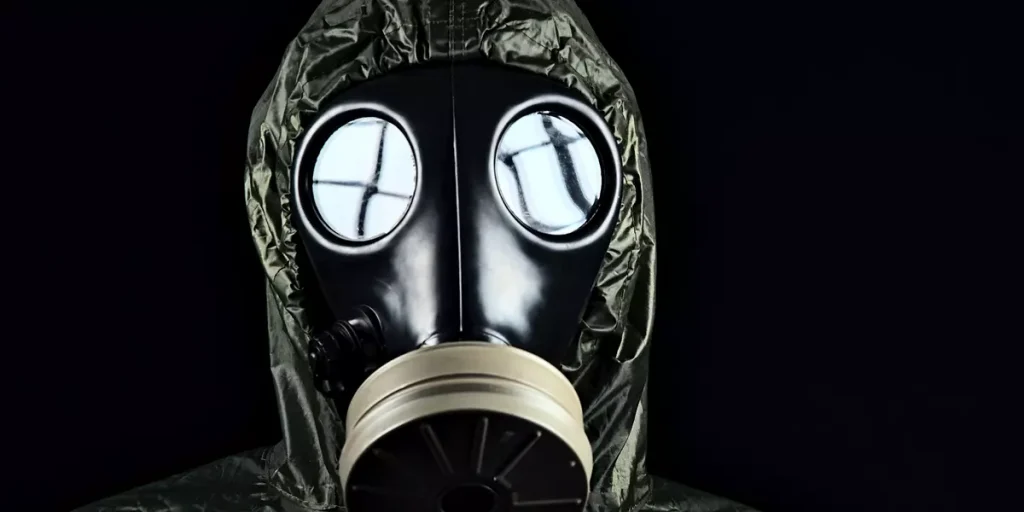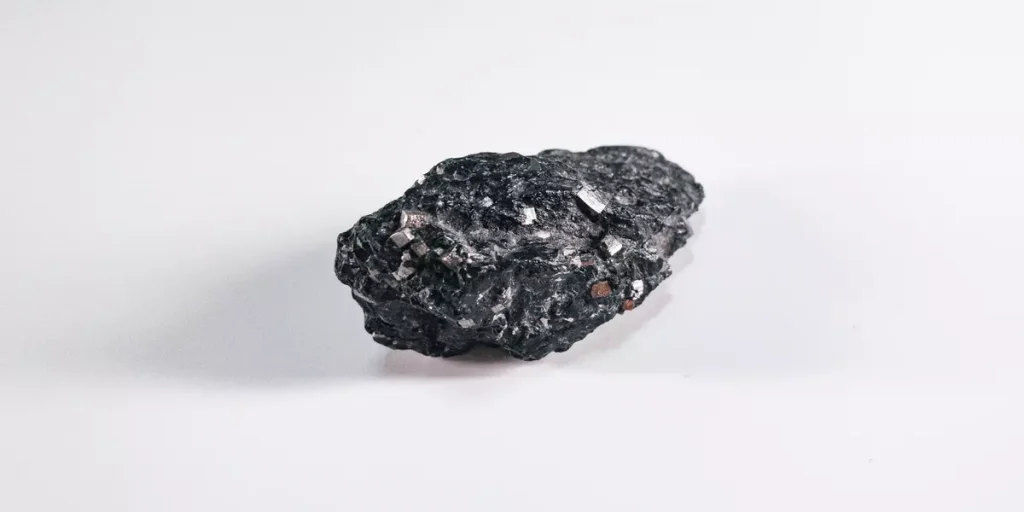
One of the most interesting composting facts that you likely know but haven’t thought about much is that composting is all about decay.
This decaying, or decomposition, is essential to life on Earth. The process of clearing out dead material and recycling the nutrients, especially carbon, is fundamental to the cycle of life.
When you compost, you create a mini-laboratory in your backyard where you simulate this essential process. Manufacturing life-giving nutrients and sending them back to the Earth. Pretty neat!
But don’t worry, there are many more interesting composting facts to cover, including a discussion of animal excrement, human urine, Shakespeare, how getting your hair cut can accelerate the compost cycle, and how coal is an example of what happens when you DON’T decompose organic matter.
So let us jump right in!
Famous Composters from History

The history books are littered with references to composting. Greeks, Romans, references in the Bible, and even Shakespeare dropped a line about composting in Hamlet. We believe it was something like, “To compost or not to compost,” but you might want to fact check that.
Our founding fathers were definitely using compost on their farms. Paul Haworth’s 1915 biography of George Washington claims our first president saved manure “like gold” for fertilizing his soil.
Thomas Jefferson was also a big proponent of using the waste products from farming, again with a focus on manure, to benefit his crops. Something tells me both men didn’t actually handle much manure, leaving that to their ample number of enslaved humans.
George Washington Carver was an early proponent of composting, imploring farmers to use this free resource:
“A year-round compost pile is absolutely essential and can be had with little labor and practically no cash outlay.”
We couldn’t have said it better ourselves.
Weird Nitrogen Rich Items for Your Compost
Composting facts can get really weird really fast, even weirder than our first president comparing poop to gold. For instance, you can add some really strange things to your compost bin that will be happily eaten up by the living organisms populating it.
As I’m sure you are aware, you need to add a good balance of nitrogen rich and carbon rich materials to optimize the decomposition process. Otherwise known as “greens” (nitrogen rich) and “browns” (carbon rich).
Typically it’s more challenging to find browns, since most of your food waste will count as greens.
But as it turns out, there are some strange nitrogen-rich items you can throw into your compost pile, or should we say stream into your compost bin, such as urine!
Yes that is right, human urine is completely acceptable to add to your compost pile, from a scientific perspective. From the perspective of your neighbors and law enforcement, it could be less acceptable.
As far as the percentage of nitrogen in human urine, is actually not that high. But get a load of how nitrogen rich the following strange compostable items are. As a reference point, coffee grinds are about 2% nitrogen.
- Human hair is about 14% nitrogen. As long as you cut it up, especially for the trimmings of a long-locked person, it is fine to add it to your compost pile.
- Dried blood is also high in nitrogen, also coming in at 10 to 14% nitrogen. If you have large amounts of dried blood lying around your house, there may be other things to worry about besides the nitrogen levels in your compost bin.
- Bone meal, which is basically ground up bones, also is very high in nitrogen.
Other Weird Items You Didn’t Know You Could Compost
This next set of interesting composting facts are less gross but equally surprising.
There are many other unusual things you can add to your compost pile without any negative effect.
- Nail clippings are the only other part of your body, besides hair, that you should add to your compost pile.
- Cotton swabs, as long as they’re not the plastic kind, are completely acceptable for you to add to your compost bin. As with most ingredients, you might consider cutting them up into smaller pieces.
- Feathers from old pillows can be added to your compost pile.
- Tissues and paper towels are a good source of carbon. If you’re using paper towels, there are some things to consider.
- You are good to add dryer lint but be careful if you wear a lot of synthetic clothing, you might be adding microplastics to the soil.
To see a full list of surprising items that you can add to your compost, see Michelle Balz’s book Composting for a New Generation. It is a great beginner’s guide to composting.
A Composting Fact to Remember: Anaerobic Composting Stinks

When most people talk about composting, they are talking about aerobic composting. With most backyard composting piles, you are relying on oxygen-loving organisms to eat up your garbage.
But an important composting fact is that when your compost pile has insufficient oxygen, anaerobic bacteria will move in and ferment the organic material inside the pile.
You will smell a chemical odor, basically ammonia, as well as the odor of rotten eggs if this happens. Besides the smell of black death inside your bin, you’ll visually notice a black mess in the pile as well.
Keeping a balanced compost pile is key here. The main factors you need to be mindful of are air, moisture, and balancing carbon and nitrogen rich materials (“browns” vs. “greens”). The good news is when you balance these factors, you can also speed up your compost cycles.
Your Compost Sweatshop Can Get Really Hot
One of the most interesting composting facts is how much heat can be produced by the billions of organisms working in your backyard decomposition factory. However, you can rest assured these workers like it hot.
During the hottest stage of composting, your compost pile can reach temperatures of 140 degrees Fahrenheit. This is really hot! It is hot enough to kill pathogens, kill weed seeds and is above the recommended setting on your hot water heater!
According to the Consumer Protection Safety Commission, tap water at 140 degrees can deliver 3rd degree burns with only 6 seconds of exposure! We do not recommend sticking your bare hands deep into a hot compost pile. Mostly because it’d be a little gross.
But reaching high temperatures in your compost pile will break down materials much faster, in as little as 6 weeks.
However, those super hot temperatures can actually reduce some of the benefits of compost. Specifically, according to the book Easy Composting, some of the disease suppressing bacteria cannot survive in those higher temperatures.
Compost vs. Humus: What is the Difference?
Composting facts can get confusing.
The terminology of composting can confuse us lay people. Most people use the terms compost and humus interchangeably. But a scientist might correct you angrily if they caught you in the act (not kindly scientists like Bill Nye though).
Humus is the “stable” decomposed organic matter you get at the end of the process. It makes up the majority of what you think of as finished compost. When you add humus to your soil it helps with soil structure and water retention.
Think about it like this. Humus helps soil structure. Soil structure helps increase oxygen levels. Humus also helps soil hold water, which reduces run-off of essential nutrients and of course quenches thirsty soil life.
Air and water, as we humans can attest to, is key to life. This is true for plants and soil dwellers as well.
But honestly, if you search the interwebs or read a few composting books, you’ll get different answers to this question.
For instance, in the formidably researched and seemingly very trustworthy Rodale Book of Composting, the authors say “Humus…the end product of composting…is rich in nutrients.” The equally authoritative, though slimmer book Easy Compost, the glossary says humus “…is not a source of nutrients for plants…”
But let’s just keep it simple and stay above the fray. When you compost organic material, you create humus. Humus is good for plants and the vibrant web of life living in the first few inches of your soil.
Compost Is Free Fertilizer
A cool composting fact is that compost is a superior fertilizer to store bough fertilizer. When you add store bought fertilizer, it tends to release nutrients in a big bang.
Compost has nutrients locked in and when you add it to the soil, releases those nutrients slowly over time as the remaining nutrients are further decomposed within the soil. Plants eat up those nutrients over time, helping you create a healthier garden for the long haul.
Without Decomposition, Coal Happens

During the Carboniferous period, our planet was covered by trees, lots of trees. As those trees fell over, they began to pile up in massive numbers.
However, without the types of microorganisms and fungi that populate your compost bin, this organic material did not decompose like it does today.
This organic material was buried under water and landmass and in the intense furnace of the Earth’s interior, coal was created.
Interestingly, this whole process created a strange “reverse global warming,” a global cooling.
The decomposition process produces carbon dioxide. During this period the lack of decomposition, either from the lack of bacteria and fungi, or from being buried by the violent convulsions of the moving continents, the atmosphere ran of out carbon dioxide.
This lack of carbon dioxide actually cooled the planet significantly, enough to cause a major collapse of the rainforests and drive a mass extinction event!
So keep composting and save us from global cooling (and global warming!).
Does Composting Contribute to Global Warming?
One of the more surprising composting facts is how much carbon dioxide is actually released by decaying matter, which technically includes composting.
But let’s be clear about the the answer to the question above: No, composting isn’t really a source of global warming. You might come across that myth on climate change-denying websites, a category we are firmly NOT part of!
It is true that up to 90% of yearly carbon dioxide emissions are from natural processes, including the decomposition of organic material.
Rotting vegetation emits about 220 gigatonnes of CO2 every year, which is much larger than the human-caused emissions of around 30 gigatonnes of CO2 per year.
That said, Mother Earth has honed its ability to suck up all that carbon over millions and millions of years. However, since the Industrial Revolution we’ve spiked the amount of carbon in the atmosphere in a way that makes it very difficult for the planet to balance out.
Composting actually “sinks” carbon in the soil, extending the carbon cycle and keeping it out of the atmosphere. In fact soil is a huge carbon sink for the planet and maximizing its ability to hold carbon is a serious strategy for getting us out of our global warming predicament.
Composting Facts: Let Us Review
Now, what have we learned class? That is hard today, but hopefully you have a new appreciation for the power of nature to recycle organic matter, no matter how gross it may seem to us squeamish humans.
Oh, and if you really, really have to go, you can pee in your own compost bin. But if you get caught by the fuzz, tell them you were blinded by science.
This post has affiliate links. We try to indicate which products we’ve owned and tested ourselves. If you end up making a purchase through one of our affiliate links, we may earn a very small commission that offsets the cost of hosting, building, and maintaining this site.
Leave a Reply